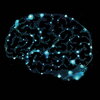
Contact Information
524 Burrill Hall
407 S. Goodwin Ave
Urbana, IL 61801
Research Interests
Research Topics
Computational Biology, Neurobiology
Disease Research Interests
Drug Discovery, Neurological and Behavioral Disorders
Research Description
Multilevel modeling of neurobiological systems in health and disease.
Many of the most interesting and important neurobiological phenomena, as well as the pathological processes underlying neurological diseases, involve interactions at multiple levels. For example, certain forms of Alzheimer Disease result from mutations in the genes that code for the proteins that process the beta-amyloid peptide, the build-up of which results in the dysfunction and death of neurons, which in turn lead to failure of the neural circuits and brain regions that mediate memory and cognition. Other multilevel processes are implicated in other neurological and psychological disorders. Our work concerns the computational modeling of multilevel neurobiological process, with a current focus on Alzheimer and other neurodegenerative diseases, mood disorders including depression and anxiety, and eating disorders. By representing experimental findings formally as declarations in a computer program, the multilevel physiology and pathophysiology of various neurobiological processes can be explored through simulation and analysis, leading to experimentally testable predictions and new perspectives on possible pharmacological interventions.
Education
B.Sc. 1980 McGill University
Ph.D. 1986 University of Texas, Galveston
Postdoc. 1988 John Hopkins University
Additional Campus Affiliations
Associate Professor Emeritus, Molecular and Integrative Physiology
External Links
Recent Publications
Anastasio, A. T., Zinger, B. S., & Anastasio, T. J. (2022). A novel application of neural networks to identify potentially effective combinations of biologic factors for enhancement of bone fusion/repair. PloS one, 17(11 November), Article e0276562. https://doi.org/10.1371/journal.pone.0276562
Anastasio, T. J. (2022). Application of Declarative Programming in Neurobiology. In Encyclopedia of Computational Neuroscience, Second Edition (pp. 216-221). Springer. https://doi.org/10.1007/978-1-0716-1006-0_749
Anastasio, T. J. (2022). Deriving testable hypotheses through an analogy between individual and collective memory. In S. M. O'Mara (Ed.), Collective Memory (1 ed., pp. 99-128). (Progress in Brain Research; Vol. 274, No. 1). Elsevier B.V.. https://doi.org/10.1016/bs.pbr.2022.06.001
Anastasio, T. J. (2022). Modeling Cerebellar Learning: Input Minimization. In Encyclopedia of Computational Neuroscience, Second Edition (pp. 2056-2059). Springer. https://doi.org/10.1007/978-1-0716-1006-0_264
Anastasio, T. J., Demer, J. L., Leigh, R. J., Luebke, A. E., von Opstal, A. J., Optican, L. M., Ramat, S., & Zee, D. S. (2022). Preface. In T. Anastasio (Ed.), David A. Robinson's Modeling the Oculomotor Control System (1 ed., pp. xvii-xviii). (Progress in Brain Research; Vol. 267, No. 1). Elsevier B.V.. https://doi.org/10.1016/S0079-6123(22)00029-2
